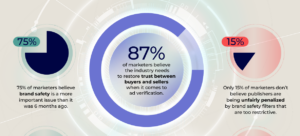As the coronavirus pandemic has quickly become the new normal, NDA wants to celebrate the positives of our current situation.
We talked to Alex Rahaman, CEO, Shenorock Ventures to find out what he had to be cheerful about.
What positive impacts have you seen on how your business operates?
We have seen companies working with media agencies be able to have more meetings by video call than they ever could have logistically arranged in person.
Advertisers are spending less but at least relationships are maintaining, renewing and even strengthening.
What have you been most heartened about in how your staff, partners, customers or clients have reacted to the new normal?
I have been most impressed by people’s ability to remain productive despite home schooling younger children. These parents need medals!
What technologies have you been most impressed with during this new situation?
So long as privacy can be maintained, the use of smartphones to manage the spread of a virus should be embraced.
It should be a trade off, however, and provide benefits to the user as well as society, for example by showing heat maps of busy areas or those with high infected rates and perhaps to certify someone with antibodies.
What, if any, positive long-term impact on the digital industry will coronavirus have?
Online grocery will benefit with the influx of millions more customers who can get over the hurdle of the new behaviour.
Companies like one I chair, Adimo, will benefit from the increased adoption of digital performance measures by FMCG brands to better spend their media dollars.
More accountability and transparency will lead to more liquidity in the market and perhaps bring a new wave of digital spenders.
What positive impacts on long term consumer behaviour shifts will it have?
We have seen in Japan the shake up of long held practices where physical stamps are required to do business, allowing people to work from home more freely.
These changes will drive a more fluid work culture, between office and home. Benefits of this include more flexibility to commuting hours and less busy trains, overall carbon reduction and potentially bringing mothers more actively into the workforce.












